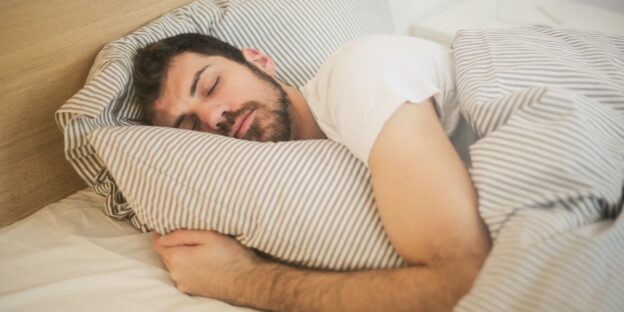There is a strong connection between sleep deprivation and substance use. Abusing drugs or alcohol can make it difficult to get good quality sleep, but withdrawing can have the same effects. And, if you don’t get enough rest in recovery, you’re more susceptible to relapse.
Because sleep disorders are up to 10 times more likely to occur in people with substance use disorders, it’s important that sleep is addressed in drug rehab in Agoura Hills. Awakenings Treatment Center will educate you on the relationship between sleep-related issues and addiction, as well as how to establish healthy sleep habits.
The Connection Between Sleep and Substance Use Disorders
Most common mental health disorders, like depression, anxiety and PTSD, affect how you sleep. Substance use disorders are no different. Drug or alcohol use can cause sleep problems, but insomnia and insufficient sleep may also raise the risk for substance use.
For instance, if you have trouble sleeping, you might take something at night to help you sleep. You might self-medicate with illicit drugs, alcohol or sleep medication. However, these drugs can be habit-forming and have a negative impact on your sleep.
As an example, you may not get the right amount of non-rapid eye movement (NREM), which is when you get your deep sleep. Or you might not get enough rapid eye movement (REM) sleep, the time when you do your dreaming. Substance use can also lead to:
- Nighttime wakefulness
- Less “good” sleep
- Less sleep overall
- Daytime sleepiness
What Happens When You Don’t Get Enough Sleep in Recovery?
Sleep is a key part of the healing process. When you’re sleeping, your body has a chance to repair itself, and your mind has a chance to rest. This way, you will feel fresh and alert when you wake up. This mentality is important when you’re in recovery, as you need your strength to make good choices and fight your fight.
If you don’t get enough sleep in recovery, here are some things that can happen:
- Stronger cravings
- Reduced alertness
- Irritability
- Anxiety
- Poor concentration
- Poor decision making
- Trouble controlling emotions
- Slow reaction times
How to Get Good Quality Sleep in Recovery
As you enter the recovery phase, it’s important to make sleep a priority. Getting enough rest won’t just make you feel better. It will protect the work you’ve done in addiction treatment in Agoura Hills. Here are some tips that will help you improve your sleep quality.
Get Educated
First, learn about the ways you can promote healthy sleep habits. This includes having a regular sleep routine, getting lots of natural light during the day and sleeping in a dark, quiet room.
Practice Relaxation Techniques
If physical or emotional stressors are keeping you up at night, you can release them with relaxation techniques. Some good ones to try include journaling, yoga or mindful meditation.
Limit Caffeine Intake
Caffeine is a drug, too, and it can make it difficult to fall asleep at night. For the best sleep, reduce your caffeine intake, and don’t drink caffeinated beverages past the morning.
Exercise Regularly
To help you get enough natural light and burn off some energy, make exercise a part of your day. Researchers have found that people who exercise every day get more and better sleep.
Start Your Recovery
Awakenings Treatment Center offers dual diagnosis rehab in California. We screen all clients for insomnia and work with them to develop good sleep habits. To learn more, contact our admissions department today.








